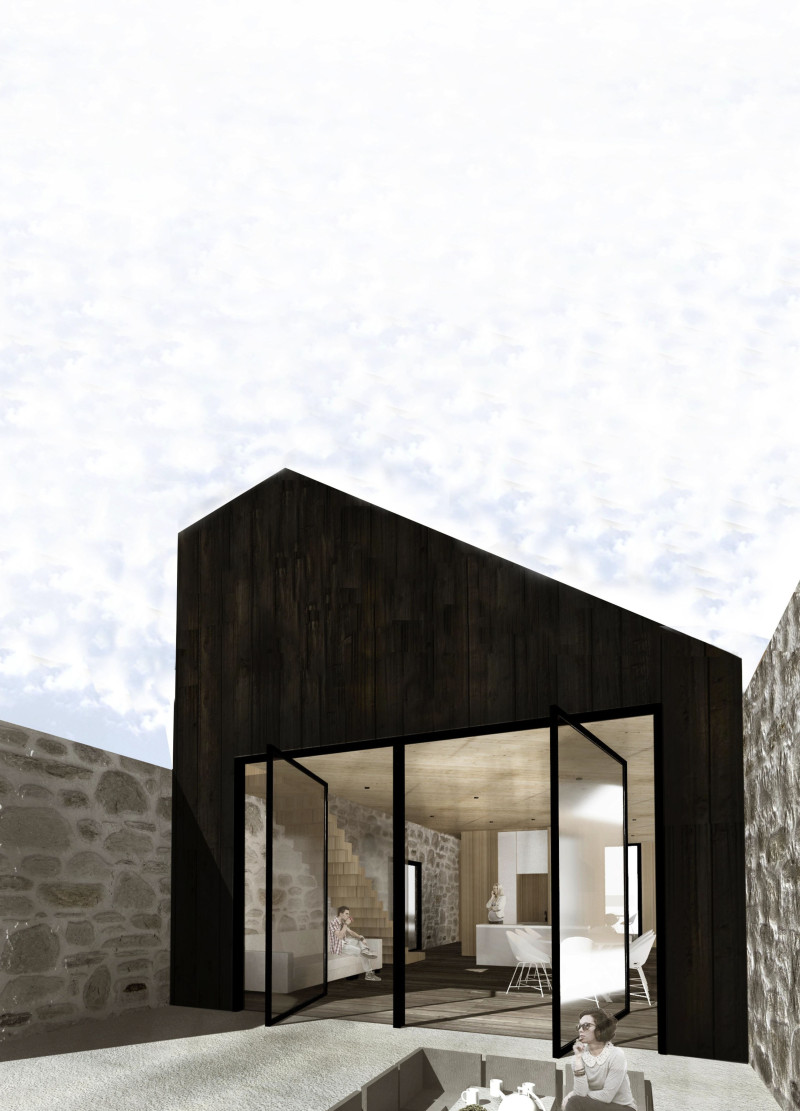5 key facts about this project
The Tea Makers Guest House is located in a tranquil forest in Latvia and is designed to foster a connection with nature and tradition. The structure combines modern design with respect for its historical surroundings. Built using the existing stone walls from an old barn, the guest house offers accommodations that promote restful experiences for visitors seeking to engage with the environment.
Preservation and Layout
The concept emphasizes the importance of the existing barn, which serves as a foundation for the guest house. The layout includes two shifted sections, resulting in varied spatial experiences. Clear distinctions are made between public and private areas, supporting both community interaction and personal reflection. This arrangement ensures that functional spaces are effectively utilized for activities like yoga and tea making.
Material Selection
The facade of the building is made of carbonated wood, which complements the stone walls and contributes to a natural aesthetic. Movable wood ribbing on the windows provides shade and helps regulate interior temperature by blocking direct sunlight. This choice of materials connects the architecture to the surrounding landscape, creating a sense of harmony with nature.
Sustainability Practices
Sustainability is a central theme in the design. Local materials are used to minimize environmental impact. Reclaimed wood from the barn is incorporated, supporting ecological responsibility. Wood fiber insulation is applied to enhance thermal efficiency within the building. The design taps into renewable energy sources found in Latvia, such as biomass and hydropower, promoting self-sufficiency and efficient energy use.
Functional Areas
The guest house consists of two main volumes. The first volume is dedicated to workshops and communal activities, including spaces for tea-making and yoga classes. This area also has practical rooms for drying and packing tea. The second volume contains living quarters, featuring a kitchen, living room, courtyard, and three bedrooms, ensuring comfort and privacy for guests.
Water from nearby sources is treated and recycled for daily needs, demonstrating a thoughtful approach to resource management. Each design choice emphasizes user experience while considering environmental impacts, resulting in a blend of community space and personal retreat that respects local culture and landscape.





















































